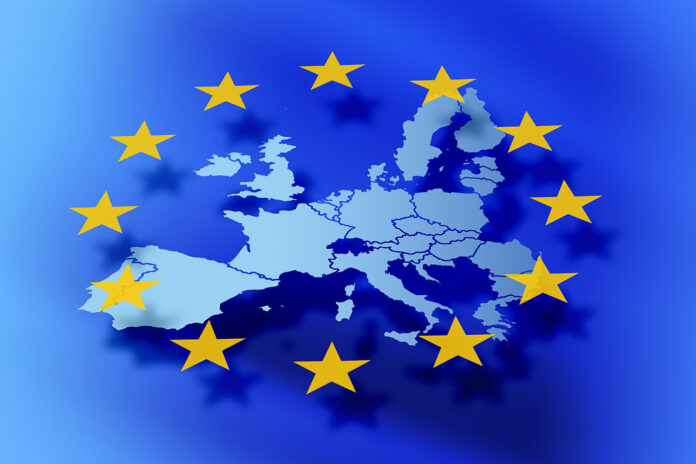While the U.S. has moved steadily forward with its patchwork of state-by-state cannabis laws, a similar movement has been occurring in Europe for years now. Several countries in the European Union have established medical cannabis programs, including Norway, Sweden, Finland, Germany, Switzerland, Italy, and Portugal, to name a few. France and Ireland are beta-testing their own medical programs as I write this. It’s very safe to say Europe understands cannabis and its many medical benefits.
Advocates often track progress toward full legalization in three steps: decriminalization, medical legalization, and full adult-use cannabis legalization. Although even folks in the industry assume the Netherlands (specifically Amsterdam), Spain, and Portugal have legalized adult use, this isn’t actually the case. All three countries recognize medical benefits of cannabis, but they merely tolerate recreational use by way of cannabis’s decriminalized status within their respective governments. Portugal specifically decriminalized all recreational drugs more than ten years ago before introducing its medical cannabis program. Taxes collected by the program are used to fund addiction treatment programs and other resources for substance abuse. The Portuguese government has taken the passionate approach of helping, not harming those struggling with addiction.
Adult-use cannabis history
In 2013, Uruguay became the first country in the world to legalize recreational use. While the country decriminalized cannabis way back in 1974, the move was quite controversial. Five years later, on October 17, 2018, the Federal Cannabis Act kicked off in Canada, making the country the first G7 and G20 nation to legalize adult use. Not to steal Uruguay’s thunder, but this was huge. After all, Canada is the second-largest country in the world by land mass. Just one month later, reports indicated a player in the EU was ready to make a similar leap — again, quite controversial given the EU had only begun coming around to medical use at the time.
In November 2018, the government of Luxembourg announced it would legalize the recreational use of cannabis by late 2021. Personally, I was impressed to hear this; Luxembourg had just kicked off its two-year pilot medical program one year prior, in 2017. Granted, the country had decriminalized personal possession in 1973 when the government reclassified cannabis to a Category B controlled substance — something several other countries and U.S. states also did throughout the ’70s — but this still raised eyebrows for those tracking and working in cannabis internationally.
Until Malta unexpectedly legalized adult use in January, Luxembourg was poised to become the first European country to implement an adult-use program — but not in the way most might think. Luxembourg will kick things off by allowing possession and cultivation of cannabis for personal use, much as Washington D.C. did in the U.S. Parliament is expected to vote on some iteration of the proposal by early 2022, and the current ruling parties are on board with reform. The country will enter the space privately, then commercially; think of it as a “walk before you run” approach.
Germany on the move
The expression “timing is everything” could not have been truer for me recently. Fellow advocate and international friend Florian Rister paid me a visit during the week of Thanksgiving. During his stop in southern California, we popped into the studio so he could guest on my cannabis talk show. We also took a run up the coast to Carpinteria to visit a few farms. Just four days prior to his arrival, some amazing news broke: Germany announced its intent to legalize adult-use cannabis. This was huge! And it was especially rewarding for Florian, who has spent ten years working for the German Cannabis Association (Deutscher Hanfverband, or DHV), the largest cannabis advocacy group in Deutschland. Much like NORML in the U.S., the organization’s primary goal is full legalization and destigmatization of the plant. But unlike NORML, DHV’s push has occurred over the past few decades as opposed to fifty years.
However, legal cannabis is not new to Germany; the country’s current medical law was put in place in 2017. Unlike medical programs here in the States, this is a medical program by definition: Doctors give actual prescriptions, not recommendations. Patients then take the doctor’s note to a pharmacy, which dispenses the medicine (most often strain-specific). Cannabis, like most other doctor-prescribed substances, is recognized and covered by health insurance. With this legitimacy established, patients are barred from cultivating their own. Everything is highly regulated, with strict rules in place regarding quality and consistency.
I share this insight as it gives us a view into what an adult-use market might look like. Expect EU Good Manufacturing Practices (EU GMP) regulations to apply to any and all producers of cannabis in and for the German market.
At this time, adult-use cannabis legislation still needs to be introduced in government sessions, but from what German friends have told me, passage is inevitable because all parties involved support the proposition. While friends to the south in Luxembourg will see freedom of consumption for all adults, Germany will level up the movement by making it available commercially, not just personally.
Who’s next, you might ask? With the Netherlands and Belgium to the west of Germany and Luxembourg, some feel adoption will trend in that direction. With the attraction of additional tourism and vibe with existing lifestyles and culture in Spain, the plausibility of the Iberian Peninsula converting to adult-use status is high too.
As we saw firsthand here in the States and eventually the Americas, the movement needs to start with just one city, then one state, and eventually one country.

Lance C. Lambert has spent years cultivating brands and telling stories, primarily in the mainstream digital media and marketing space prior to making the jump to the legal cannabis industry in late 2013. In 2021, he planted his knowledge and passion-first attitude at GreenBroz, where he’s tasked with growing the company’s footprint at home and in emerging markets around the globe.










